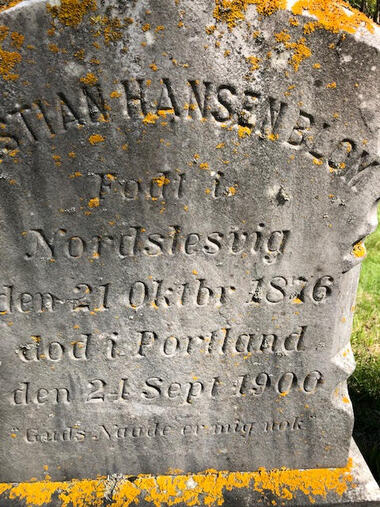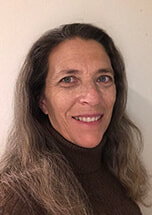|
By JERRY and RICKE BLY
The Danebod Folk School is sponsoring a Virtual Folk Meeting experience for 2020. This opportunity comes to you as a result of the Folk School Campus being closed this summer due to the COVID-19 concerns. In an effort to sustain the campus through the 2020 season and keep Danebod in your thoughts, the Folk Meeting Committee has created a virtual opportunity. You can access the web site at danebodfolkmeeting.org. You must register to be a part of this event. Included in the programming are the following opportunities: Wednesday, August 19 10:00 a.m. Practice a ZOOM session, log in with your URL and provided password. 7:00 p.m. Music from The World of Song and a story by Erik Hansen Thursday, August 20 9:15 a.m. Music from The World of Song and Danebod Pastor Gena Maria Koeberl welcomes you virtually to Danebod. 10:00 a.m. Professor Doug Simon presents “The US Constitution in Contemporary Society, Part II” 2:00 p.m. Erin Rupp presents “Pollinators in Context” 7:00 p.m. Pastor Angel Denker presents “Finding Hope in a Divided Country” Friday, August 21 9:15 a.m. Music from The World of Song and a story by Richard Siemers 10:00 a.m. Professor Todd Letcher presents “Robotics and 3-D in a Manufacturing Revolution” 2:00 p.m. Professor Mike Klein presents “Popular Education for Social Change: Grundtvig, Freire, and Peace Studies” Our speakers are, for the most part, familiar with online university classroom experiences. Jerry and I participated in a successful on-line SMSU history class this spring. A suggestion to enhance audio is to use head phones on your device. Remember this is an opportunity to support the Danebod campus in 2020 while connecting with the larger world. Please visit our website danebodfolkmeeting.org for details and registration information.
0 Comments
 By THOMAS BLOM CHITTICK [email protected] Great-uncle Carl was troubled all his life with discomfort in an ear. According to family lore, a teacher had given him a terrible yank on his ear after he had simply asked for permission to go to the restroom. Why did he get his ear yanked? Because he had made his request in Danish. This was in the years after the second Danish-Prussian War of 1864, which Denmark had lost and in the losing, lost the Duchies of Holstein and Slesvig to Prussia. My great-uncle, his four brothers, and their sister (my grandmother) lived with their parents in the farming community of Fogderup, Ravsted Parish where Prussia engaged in an effort to Germanize the local people. Speaking Danish was not allowed. The largely Danish population of northern Slesvig waited patiently after the war for the enactment of a provision in the 1866 Peace of Prague whereby a plebiscite would allow residents of Slesvig to vote their national preference. It never happened. Prussia abrogated the provision in 1879. Uncle Carl’s ear may have hurt him all his life, I don’t know. But what I do know is that the Danish loss of Nord Slesvig hurt my Blom family deeply. They were fiercely Danish and the ear was an emblem of that pain, which lasted for a generation. With that portion of the treaty abrogated, the writing was on the wall for the elder Bloms. They could easily imagine their sons being required to serve in Bismarck’s army and they would have none of it. In 1893, the family immigrated to Portland, Maine. Many Danes immigrated from Nord Slesvig at this time, settling in communities throughout the United States. The pain for the Bloms continued. Another piece of family lore happened when a new pastor came to the Danish Lutheran Church in Portland. He was heard to have asked if the suffering under Prussian rule was really all that bad. In my hearing of this story, told in English, the teller always switched to Danish when giving the awful punch line, “Was it really that bad?” It seems the Danish truth of the insult by the pastor could only be felt in Danish! All that being said, the Bloms settled into Portland rather successfully, all the while keeping up interest in Nord Slesvig. Another uncle, Hans, wrote a pamphlet, De Danske Sønderjyder (The Danish Slesviggers), published by Dannevirkes Trykkeri in Cedar Falls, Iowa, that was a detailed study of the pro-Danish residents of all the districts and towns of northern Slesvig. My sense is that there was some form of political awareness or even pressure being expressed by Danes in the US after WWI for the treaty of Versailles to include a provision for a plebiscite to be mandated for Slesvig. One other piece of family lore that indicates how the Bloms settled into Portland and retained their Danish loyalties has to do with the day they, along with many other immigrants, stood before a judge to be sworn in as American citizens. As the story is told, the judge interrupted the proceedings to say that while they would all now be American citizens, they were never to stop being proud people of the nationalities of their birth homes. That really resonated with my Blom relatives, proud as they were of their Danish homeland. How different such warmth is compared to how immigrants are spoken to and thought of in parts of today’s USA. The Treaty of Versailles, signed in June 1919, did indeed provide for the hoped for and long delayed plebiscite in Slesvig. On February 10, 1920, the area from which the Bloms came voted themselves back into Denmark. All but my great-grandfather lived to see the day. A few years later, all the Bloms, including my dad and his brother, took a trip back to their homeland before finishing out their lives in Portland. Another uncle, Anton, would keep his Danish identity by attending a Folk School out in the western U.S. [probably in Solvang, CA - Ed.] My grandmother would similarly hone her Danish identity by attending a “finishing” or secretarial school in Copenhagen. But by the time of the plebiscite, all the Bloms where happy to be Danish Americans. Among the many headstones in the Blom burial section of the Pine Grove Cemetery north of Portland, the ones for the elder generation were inscribed in Danish. Still fiercely loyal to the land of their origin, instead of writing that they came from Denmark, it says they were born in Nord Slesvig! Typical of Scandinavians who love to sing and know many hymns from memory, one of the stones has the epitaph: Tænk naar engang (Think of the time), the first words of a line from a popular hymn, to which a Danish passerby would know the conclusion and say, “den taage er forsvuden” (when this fog shall disappear). I imagine it is in reference to St Paul’s “now we see as in a mirror dimly, but then face to face.” But I also imagine it has the double meaning of their sense of loss of homeland and hopes for its return to Denmark. What is more, I think how contemporary this sentiment is for today, the fog of virus and political bitterness rife in our time. When will this fog be lifted? On June 15, 1920, HM King Christian X rode by horse across the border of the land restored to Denmark. After centuries of conflict, the borders were fixed and the crowds who received him were exultant. His grand-daughter, HM Queen Margarethe II, was to have taken that same route by auto this June, but these plans were cancelled due to the coronavirus pandemic. Still, all of Denmark has marked this occasion with pride. And we of Danish heritage can join them from this side of history and this side of the Atlantic in reflecting upon the gifts to our American life all those immigrants brought to these shores. By ANDRÉS ALBERTSEN
Note: Pastor Albertsen wrote this for the National Day of Prayer, May 7. It is loosely inspired by President Thomas Jefferson’s prayer for the nation on March 4, 1801 that was included in the 1978 Lutheran Book of Worship (the green one). Almighty God, you have given us this good land as our heritage. Make us always remember your generosity and constantly do your will. Make us good and generous stewards of the resources and talents you have entrusted to us. Bless our land with honest industry, truthful education, an honorable way of life, and visionary leaders and government officials. Be with all those who are doing essential work. Be with the doctors, nurses, researchers and all medical professionals. Be with the daycare workers. Be with the workers who sustain the entire food production system, the employees at our grocery stores, the mail carriers, the people who deliver us our packages, and the people keeping our public transit running and our public spaces clean. Expand our morality beyond the narrowness of personal piety into the broadness of public policy. Help us make sure that everybody receives a just wage, and gets access to education, healthcare, affordable housing, daycare for the kids, and unemployment benefits when they lose their jobs. Give us the strength to be self-critical, and to look upon our imperfections and decide that it is in our power to remake this country and align it more closely with our highest ideals. Give us the strength to challenge racism, poverty, unchecked militarism, and ecological devastation. Always remind us that change depends on our actions, our attitudes, our votes, and the things that we teach our children. Save us from the fear that prevents us from working together and helping one another. Save us from the violence that creates more violence. Save us from the pride that can make us claim invulnerability. Save us from every evil course of action. In this time of danger and trouble, comfort those in distress, give us patience to endure the waiting, and grant us courage and hope to face the future; through Jesus Christ, our Savior and Lord. Amen. [email protected] |
Editor InformationBridget Lois Jensen Archives
March 2023
|
Subscribe | Gift |
Submit an Article |
Contact |
© COPYRIGHT 2019 CHURCH AND LIFE.
|

 RSS Feed
RSS Feed